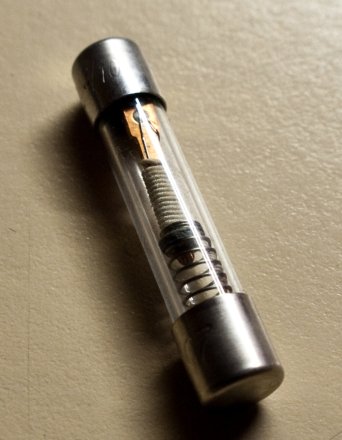iwantobelieve
Member
- Joined
- Apr 9, 2021
- Messages
- 61
- Likes
- 44
Thanks. Could you elaborate on what exactly is the mechanism which causes the fuse to fail when too much current(?) is drawn through it?
I only realised while having this exchange that I don’t actually know. I had always assumed that it was the higher resistance of a relatively narrow gauge of wire/foil in a fuse which caused it to overheat and blow before anything else (including the AC cord), breaking the connection when too much current was drawn across it. It now seems like this assumption can’t be correct and that another process is at work. I’d be grateful to know, it’ll really annoy me until I find out now.
A Google of ‘how a fuse works’ or ‘why does a fuse fail’ produced nothing to enlighten me further, or I wouldn’t bother you folks here for an explanation.
I only realised while having this exchange that I don’t actually know. I had always assumed that it was the higher resistance of a relatively narrow gauge of wire/foil in a fuse which caused it to overheat and blow before anything else (including the AC cord), breaking the connection when too much current was drawn across it. It now seems like this assumption can’t be correct and that another process is at work. I’d be grateful to know, it’ll really annoy me until I find out now.
A Google of ‘how a fuse works’ or ‘why does a fuse fail’ produced nothing to enlighten me further, or I wouldn’t bother you folks here for an explanation.




